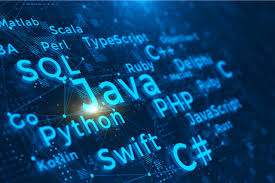A to Z of International Olympiad in Informatics
For those aiming to compete in the IOI, preparation is a rigorous but rewarding journey. Here’s a deeper dive into what this preparation entails:
1. Fundamental Programming Knowledge:
A deep understanding of programming languages like C++, Python, or Java is crucial. But it's not just about knowing a language—it's about mastering how to manipulate it to solve complex problems efficiently. This includes everything from understanding the nuances of syntax to leveraging powerful standard libraries.
2. Advanced Algorithmic Proficiency:
Success at the IOI hinges on a contestant's algorithmic gymnastics. Competitors need a firm grasp on a wide array of algorithms and data structures, especially those that are not commonly covered in standard school curriculums. This includes sophisticated algorithms for graph theory, combinatorics, dynamic programming, and geometric computations.
3. Strategic Problem Solving:
The essence of IOI problems lies in their ability to challenge a student's problem-solving skills. Regular practice on platforms such as Codeforces and LeetCode is indispensable. These platforms simulate the intense environment of the IOI and provide a vast range of problems that sharpen logical thinking and application of algorithms.
4. Learning from Peers and Past Contests:
Analyzing solutions from past IOIs is incredibly beneficial. Many communities and forums discuss various approaches to past IOI problems, offering insights into efficient coding techniques and new problem-solving methods. Additionally, engaging with peers or a mentor can provide new strategies and critical feedback that is crucial for improvement.
5. Mental and Emotional Preparation:
Competing at an international level can be as taxing mentally as it is intellectually. Successful competitors often stress the importance of stamina and stress management, skills that are honed through experience in mock contests and real competition environments.
6. Cultural and Interpersonal Growth:
Beyond the algorithms and the coding, IOI is a vibrant melting pot of cultures. It offers a unique opportunity for young talents to connect, sharing not just technical knowledge but also their diverse cultural heritages. This aspect of the IOI can be profoundly enriching, offering participants a chance to develop a global network and gain a broader perspective on the world.Preparing for the IOI is a comprehensive process that requires dedication, persistence, and a passion for problem-solving. It’s a journey that not only prepares students for the competition but also equips them with skills that are highly valued in professional and academic careers in computer science. For anyone aspiring to participate, the IOI represents a formidable, yet immensely rewarding challenge.
 |
| During contest |
For those preparing to dive into the challenging yet rewarding world of the International Olympiad in Informatics (IOI), here are some resources that will provide comprehensive training materials and insights into the competition:
1. Official IOI Website: This is your primary resource for everything from past problems to competition rules and upcoming event details. [Visit IOI Official](http://www.ioinformatics.org/index.shtml)
2. Codeforces: A dynamic programming community that offers regular virtual contests and a vast archive of problems. It's an excellent place for honing problem-solving skills under timed conditions. [Explore Codeforces](https://codeforces.com/)
3. USACO Training Pages: The USA Computing Olympiad provides a training site with instructional materials and practice problems that are similar in style to IOI problems. [Check out USACO Training](http://train.usaco.org/usacogate)
4. LeetCode: Known for a wide range of problems, LeetCode helps in building and testing algorithmic skills and preparing for the coding interviews, which shares similarities with IOI problem solving. [Practice on LeetCode](https://leetcode.com/)
5. CSES Problem Set: Created by an IOI medalist, this collection of competitive programming practice problems is a great tool for students to prepare for various algorithmic challenges. [Visit CSES Problem Set](https://cses.fi/problemset/)
6. Art of Problem Solving (AoPS): While more commonly associated with mathematics, AoPS offers resources and a community that can also help in developing algorithmic thinking essential for the IOI. [Learn at AoPS](https://artofproblemsolving.com/)
These resources provide both theoretical knowledge and practical application through problems and contests, which are crucial for a comprehensive preparation for the IOI. Engaging with these platforms can significantly enhance your readiness for the competition, helping you develop the necessary skills to excel.








No comments